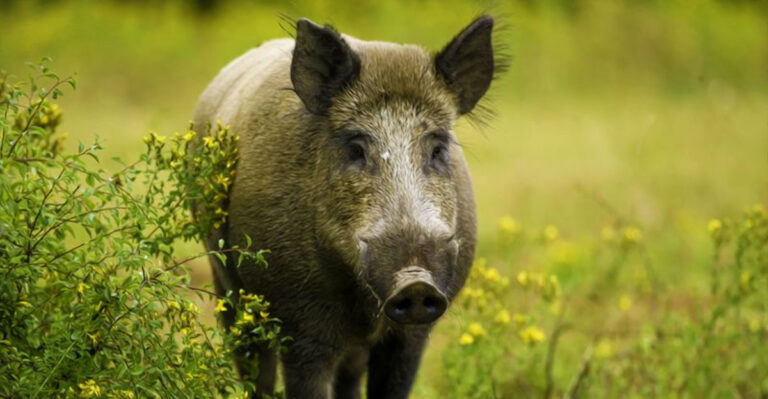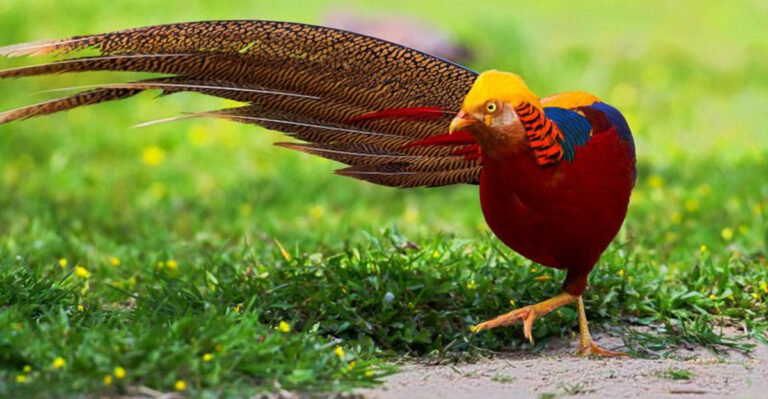How To Effectively Predator-Proof Your Chicken Coop And Run
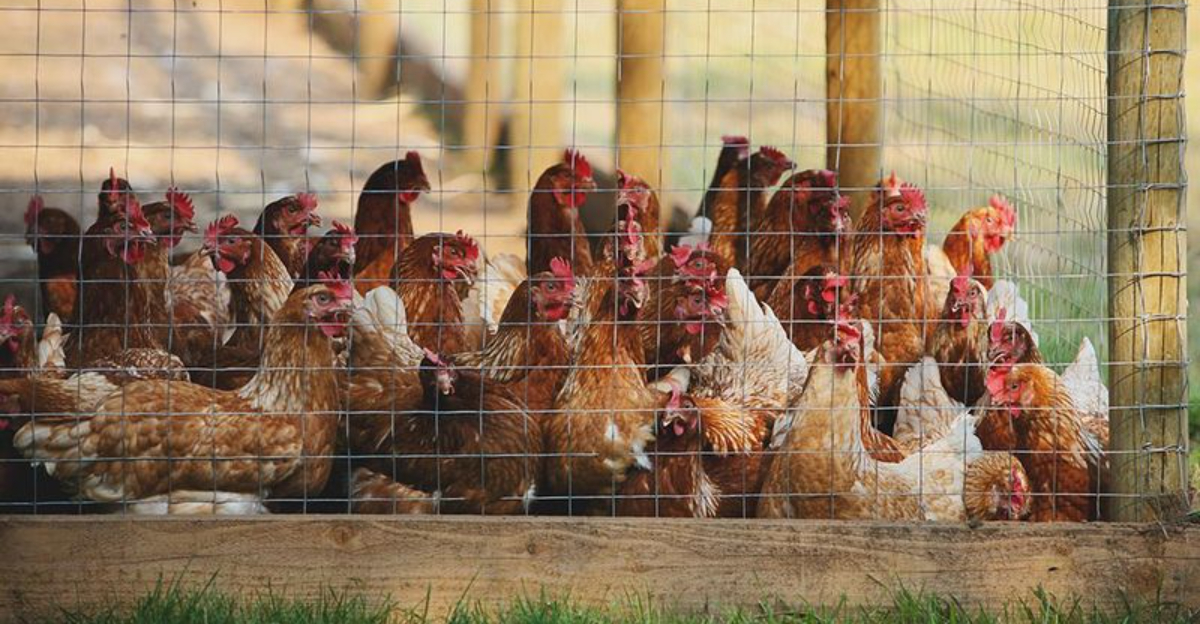
Keeping chickens can be rewarding, but nothing’s more heartbreaking than losing your feathered friends to hungry predators. From sneaky foxes to determined raccoons, the threats are many and persistent.
Properly securing your chicken coop isn’t just a good idea – it’s essential for keeping your flock safe and giving you peace of mind.
1. Bury Your Fencing Deep
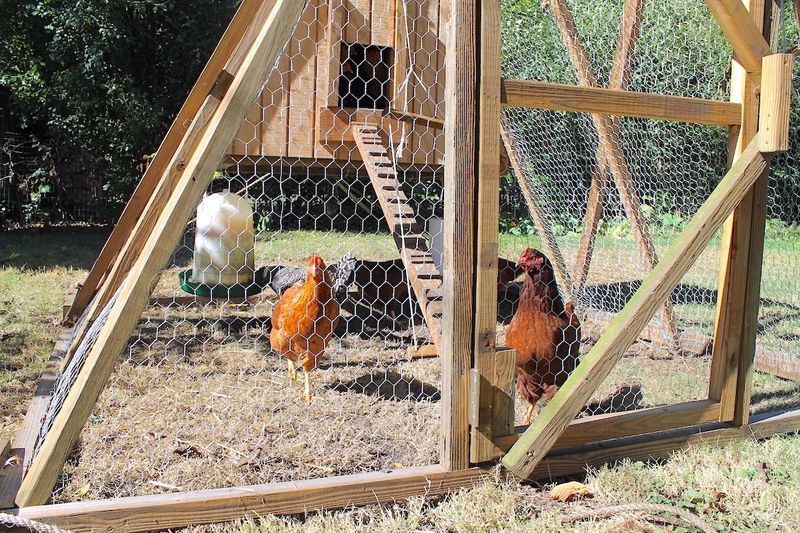
Digging predators like foxes and coyotes won’t be stopped by a fence that ends at ground level. Extend your wire mesh at least 12 inches underground, bending it outward to create an L-shape.
This underground barrier frustrates diggers who expect to tunnel straight down. For extra security, some chicken keepers add rocks or bricks along the buried portion.
2. Choose Hardware Cloth Over Chicken Wire
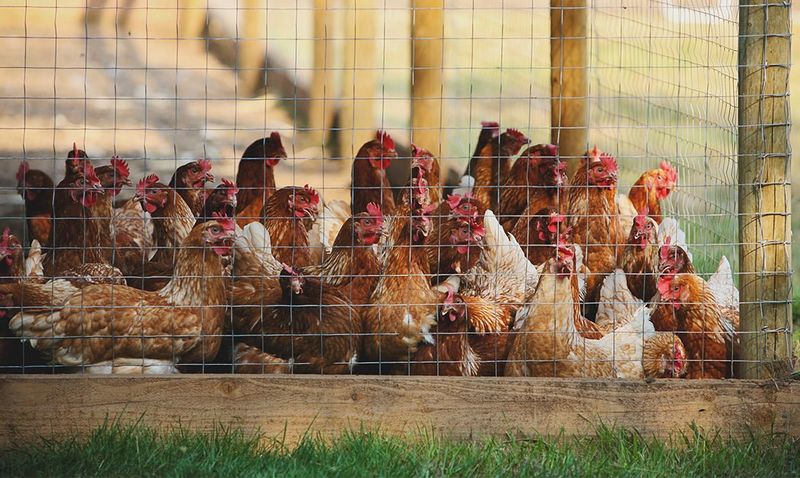
Contrary to its name, chicken wire won’t keep predators out! Raccoons can tear through it, and smaller predators squeeze right through the holes.
Hardware cloth with ¼ or ½ inch openings provides true protection. Though pricier, this sturdy welded wire mesh stops determined teeth and claws where flimsy chicken wire fails.
3. Implement Automatic Coop Doors
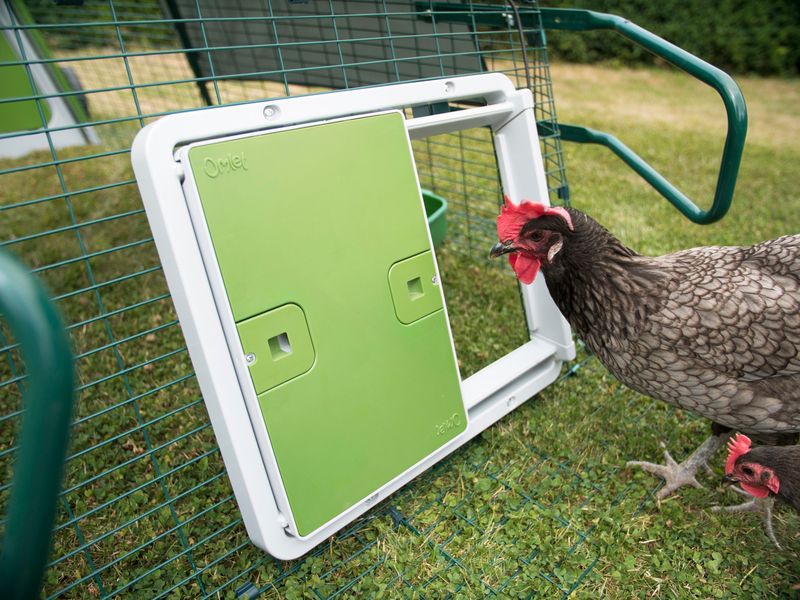
Night-time is prime hunting time for many predators. Automatic coop doors close at sunset and open at sunrise, protecting your chickens when you’re not around.
Solar-powered options eliminate wiring headaches. Just remember to check the mechanism regularly to ensure it’s working properly, especially during seasonal time changes.
4. Eliminate Small Openings
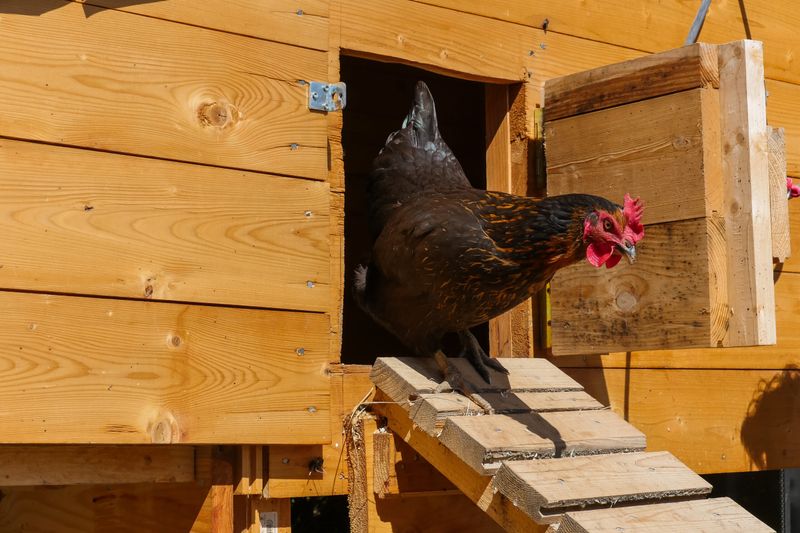
A weasel needs just a one-inch gap to squeeze through and decimate your flock! Inspect your coop regularly for tiny holes, gaps in construction, or damaged areas.
Pay special attention to corners and where different materials meet. Fill small gaps with steel wool (which predators hate to chew) and repair larger openings immediately with hardware cloth or wood.
5. Secure The Roof And Floor
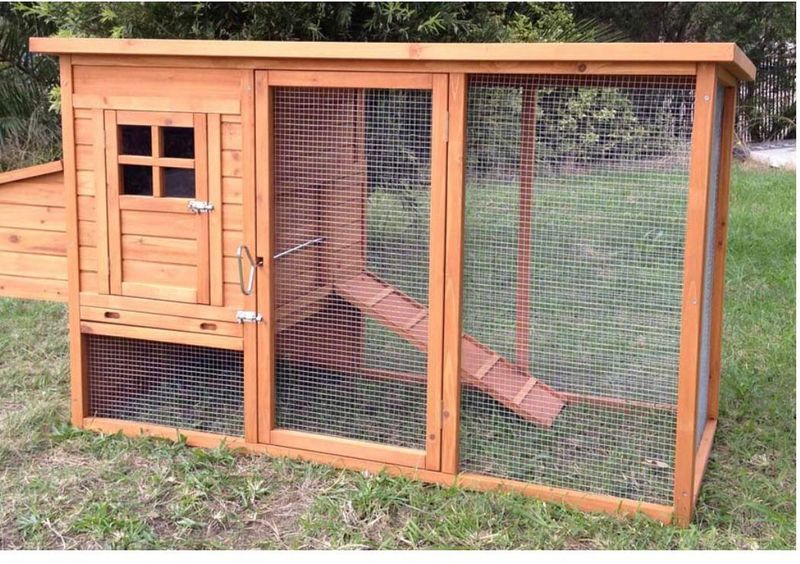
Flying predators like hawks and climbing raccoons see your coop’s roof as an invitation. Cover outdoor runs with hardware cloth or netting to block aerial attacks.
Don’t forget the floor! Predators can dig under walls, so install a solid floor or extend wire mesh across the entire bottom of the coop. Some keepers use concrete pavers for added security.
6. Install Motion-Activated Lights
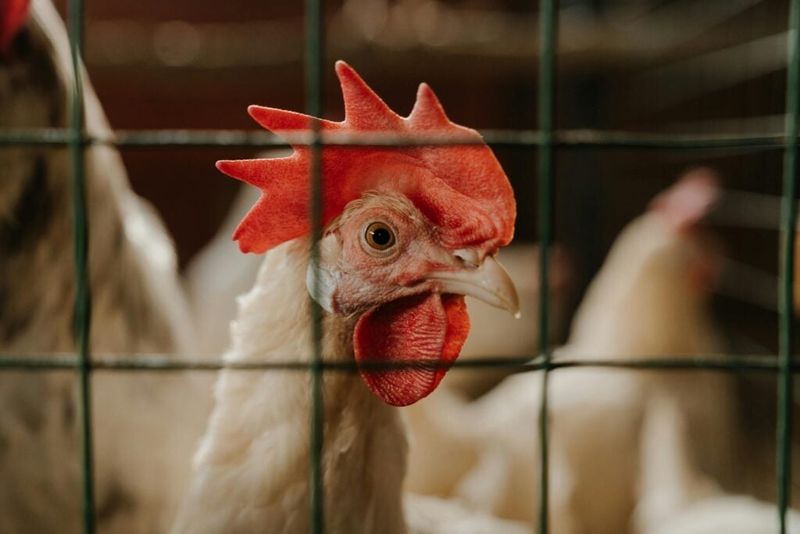
Sudden brightness startles nocturnal hunters like raccoons and foxes. Motion-activated lights create an effective first line of defense, often scaring away predators before they attempt a break-in.
Solar-powered options work well in remote coop locations. Position lights to illuminate all approaches to the coop, not just the main entrance.
7. Use Predator-Deterring Scents
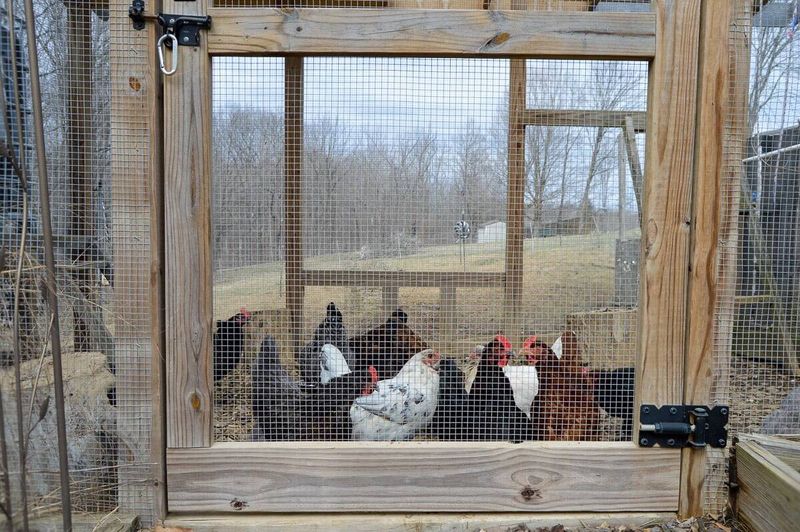
Predators rely heavily on their sense of smell. Commercial repellents or natural deterrents like wolf urine, ammonia-soaked rags, or even human hair can create a boundary that makes predators think twice.
Refresh these scent barriers regularly, especially after rain. Remember that scent deterrents work best as part of a comprehensive protection strategy, not as your only defense.
8. Employ Double-Locking Systems
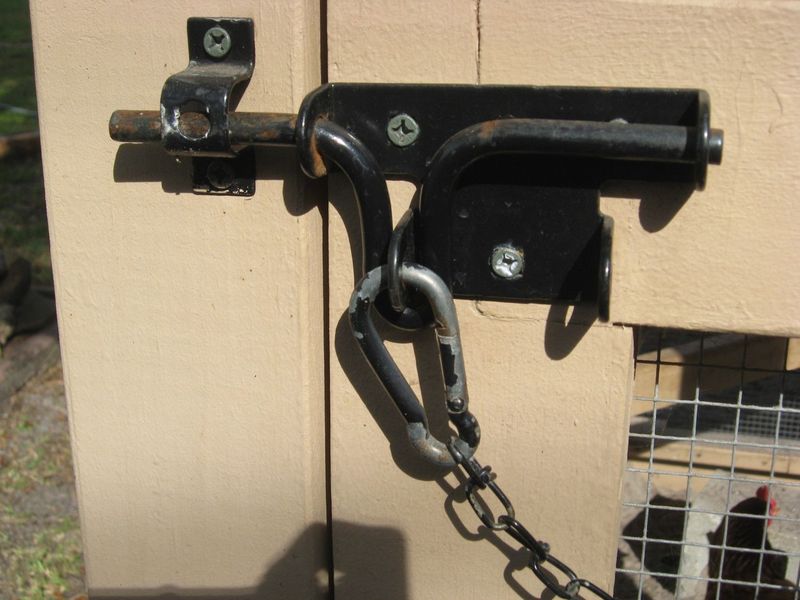
Raccoons can figure out simple latches with their nimble paws! Use two different types of locks on each door – a sliding bolt plus a carabiner clip works well.
Position locks in the middle of doors rather than at edges where predators can gain leverage. Test your locks by giving doors a firm shake – if they rattle or move, they need better securing.
9. Remove Attractants From The Area
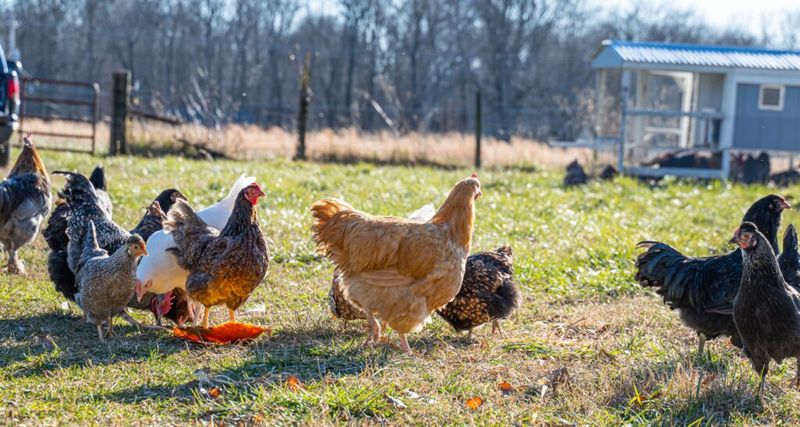
Spilled chicken feed is like ringing a dinner bell for rats, which attract snakes and larger predators. Clean up feed daily and store it in metal containers with tight-fitting lids.
Keep the area around your coop clear of tall grass, brush piles, and debris where predators can hide. This eliminates stalking spots and makes your chickens less vulnerable.
10. Add Guard Animals To Your Defense
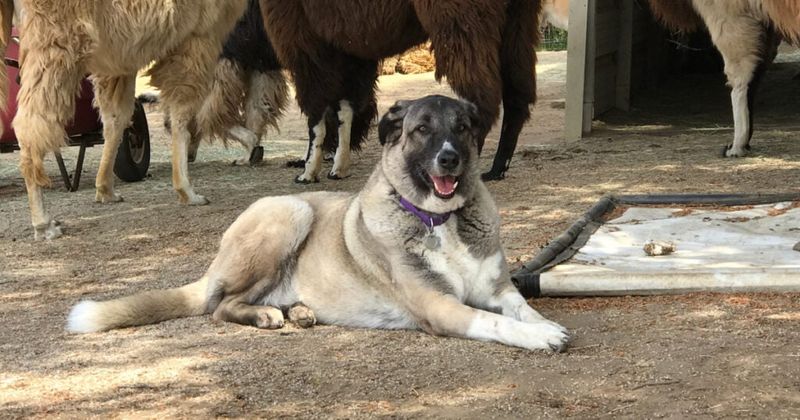
Guardian dogs like Great Pyrenees or Anatolian Shepherds have protected livestock for centuries. These breeds naturally patrol property boundaries and alert you to intruders.
Donkeys and llamas also make excellent guards, as they’re naturally aggressive toward canine predators. Even guinea fowl work as alarm systems, creating a racket when strangers approach.
11. Install Trail Cameras For Monitoring
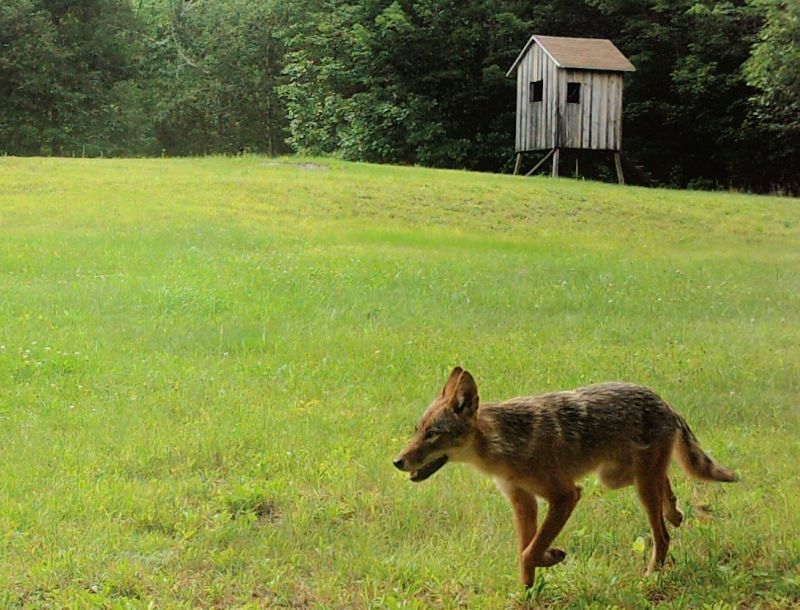
You can’t fight what you can’t identify! Trail cameras reveal which predators are targeting your flock and their preferred entry points or times.
This intelligence lets you customize your defenses against specific threats. Modern trail cams can send alerts to your phone when triggered, giving you real-time warning of potential attacks.
12. Create A Predator-Proof Schedule
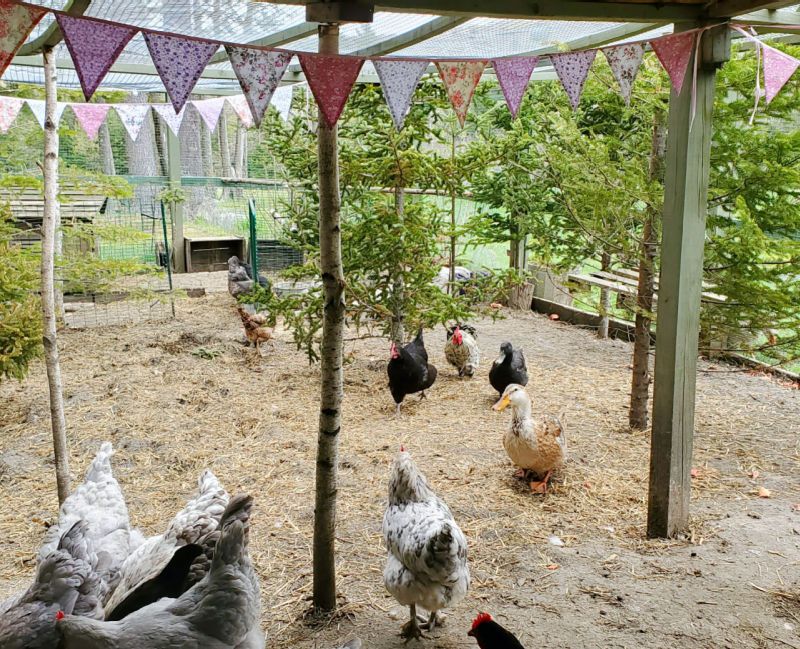
Timing matters in predator prevention. Lock chickens up before dusk when crepuscular hunters like foxes become active, not after dark when it might be too late.
Do regular daytime perimeter checks for signs of attempted entry. Seasonal awareness helps too – predators get especially desperate during late winter when natural food is scarce.



